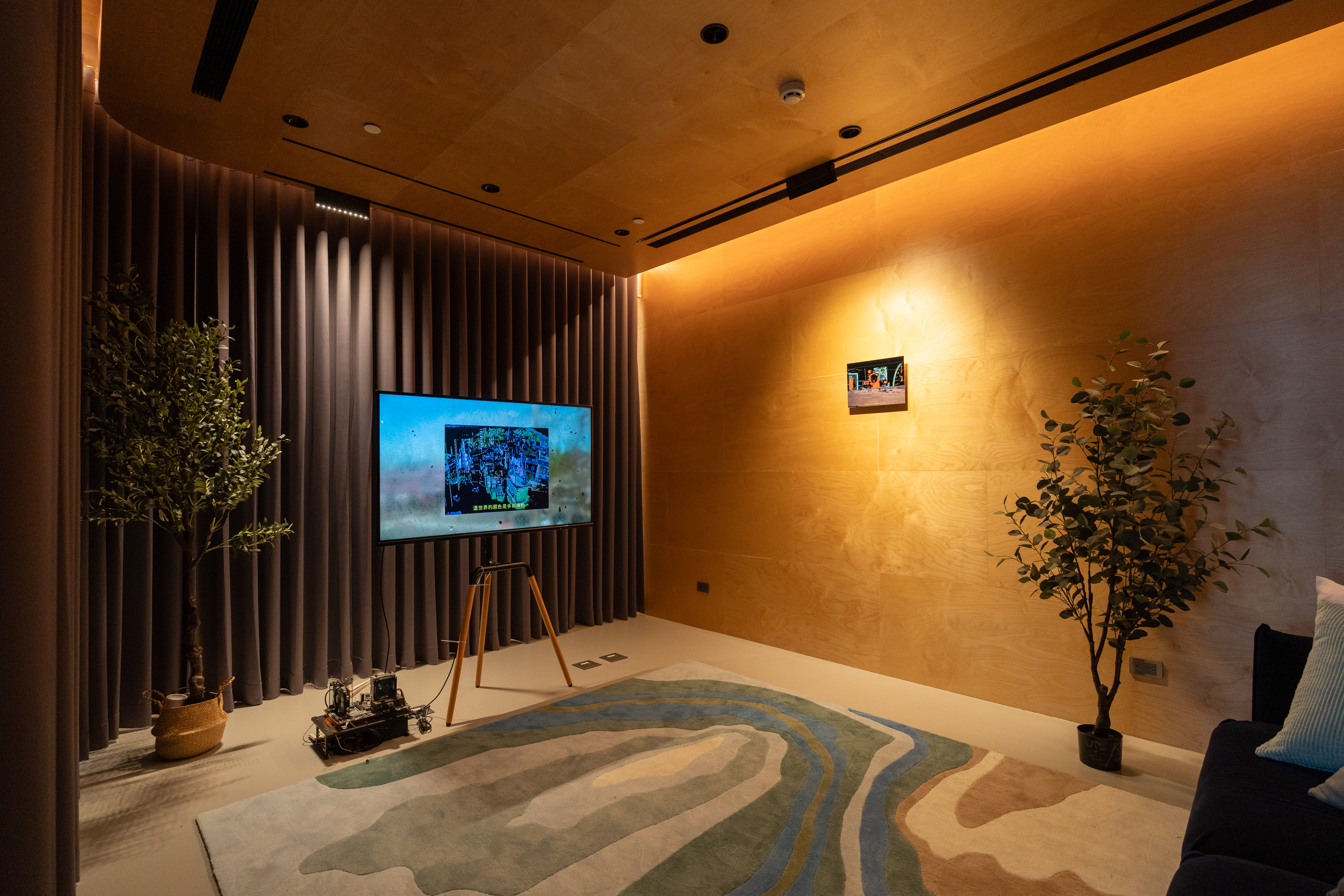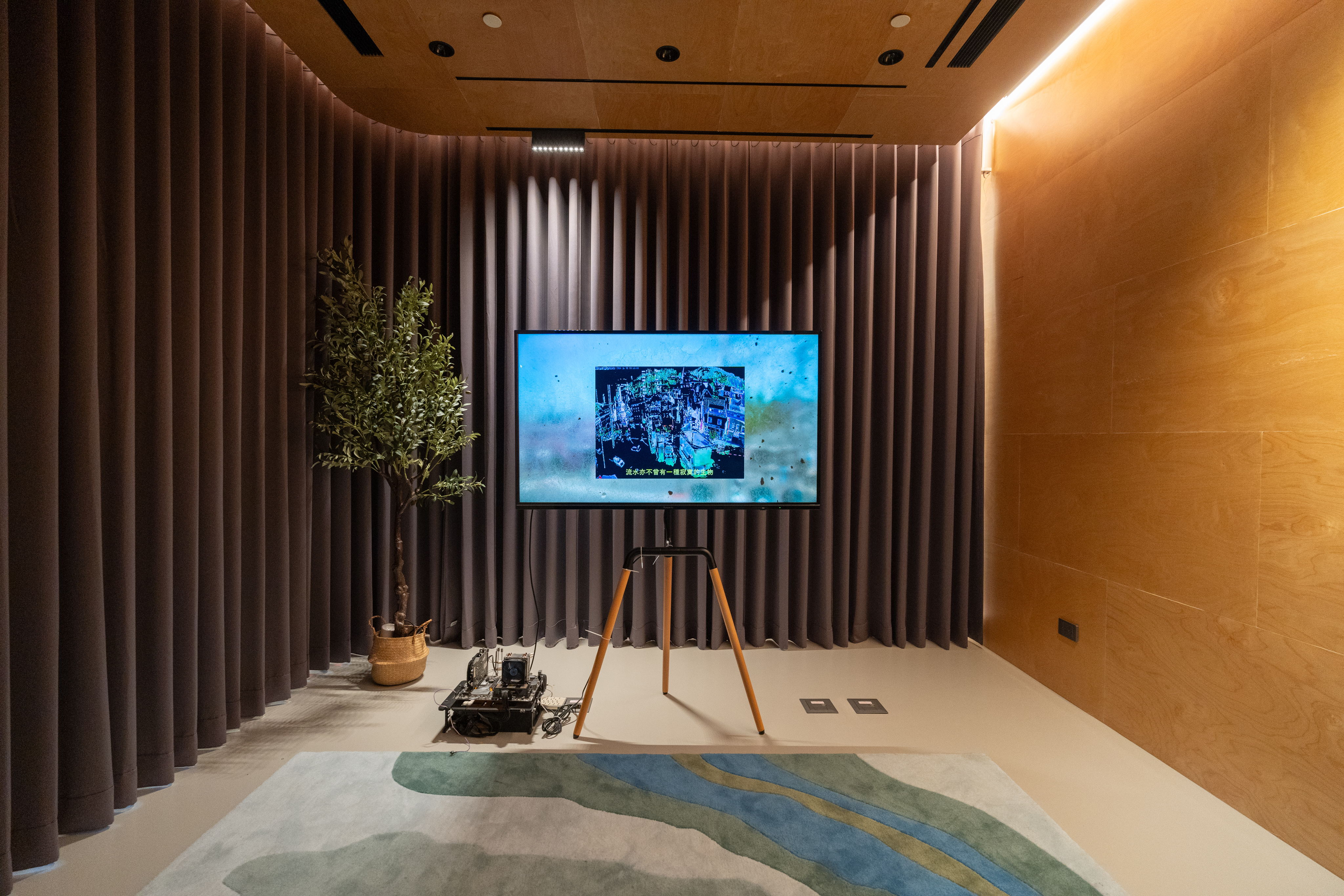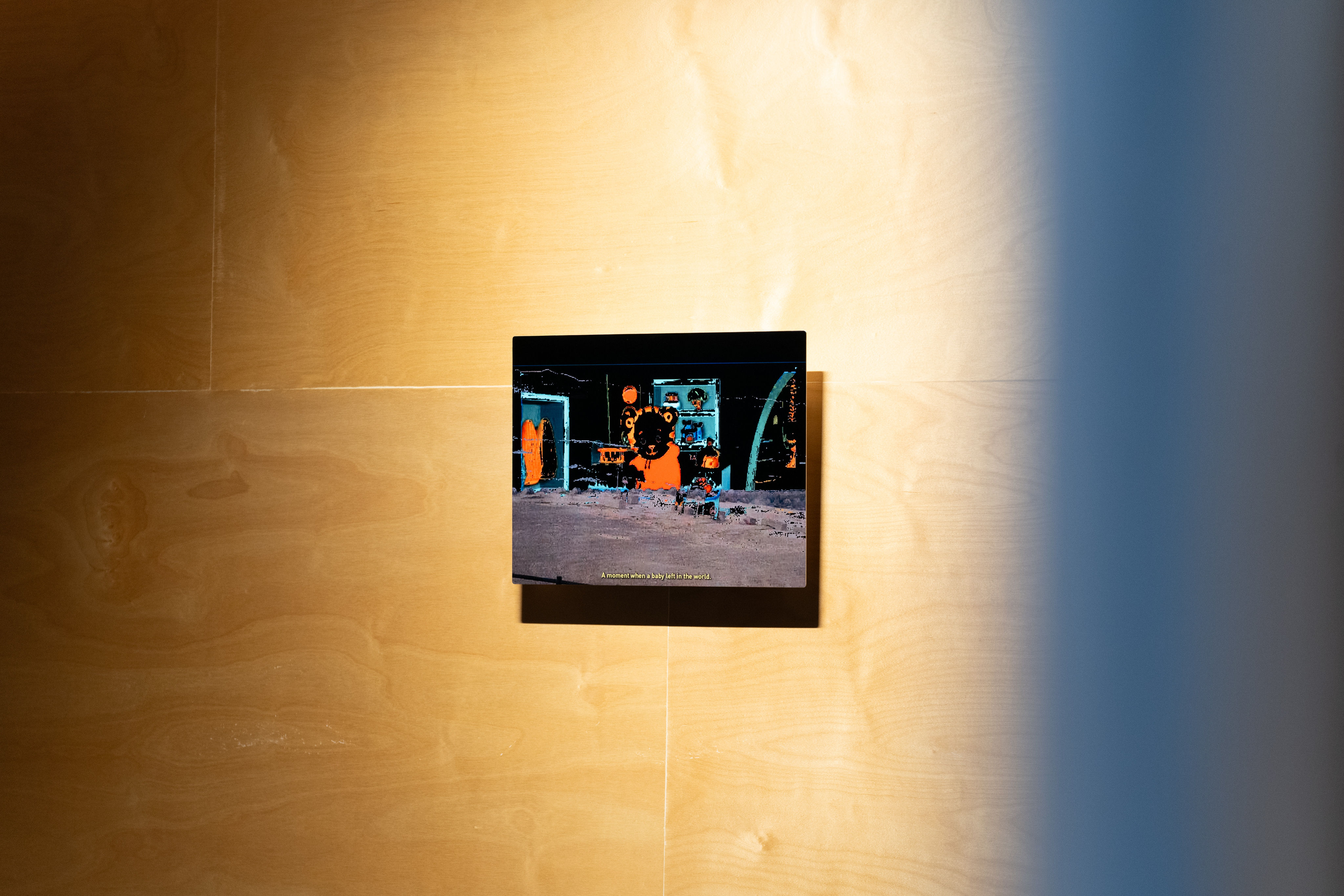Melmel Chen
陳米靖



Melmel Chen, born in 1984 in Taichung, Taiwan, holds a Master of Fine Arts from Goldsmiths, University of London. Her recent works focus on the heterogeneity of the relationship between aesthetics and politics within the context of modernization, examining the multiple relationships between nature/culture/society, human/non-human, and subject/object in contemporary circumstances. Her primary mediums include photography, sculpture, video, installation, and on-site creation. Chen has participated in group exhibitions in Indonesia, London, Norway, South Korea, etc. Recent group exhibition include "The Worldly Affairs, Love Is Not What It Seems” - 2022 Taiwan Biennial, National Taiwan Museum of Fine Arts, Taichung, 2022; "Herbal City: Hsinchu - Using Mountains and Seas as Methods,"241 Art Space, Hsinchu, 2021; and "ICAPU (International Contemporary Art Project Ulsan),” Ulsan, South Korea, 2019. During 2011 and 2022, She also participated in the Jakarta Biennale as part of artist Hou Yi-Ting's "Ring Project," collaborating on the metaphorical island unit titled "Alchemy of the Future" at the National Museum of Indonesia. Chen received support from the Taiwan Contemporary Culture Lab CREATORS Creation/Development Support Program in 2022 and was selected for the Kaohsiung Award and the Taipei Art Award in 2019.
In today’s modern society, where internet technology has highly developed, thousands of surveillance cameras are deployed in various corners of urban environments, disguising themselves as another form of the supernatural. Melmel Chen focuses on the massive amount of “weak” images produced by surveillance cameras every second. They flood into the human world but rarely into human sight. These kinds of images are typically devoid of any meaning or value, existing at the bottom of the image hierarchy, easily discarded, yet paradoxically possessing power due to their nature of surveillance.
In the artwork “Mysterious River: Fragments and Poetry,” Chen uses real-time images generated by hundreds of surveillance cameras as material. Through coding, these images are redistributed, dismantling any decipherable basis. Then, in collaboration with artificial intelligence robots, poetic writing is applied to the already broken images. Programs, humans, and artificial intelligence cannot capture the complete narrative, making meaningful filling impossible. They can only continuously generate fragmented images, forcing the brain’s visual cortex to compute and speculate on these abstract images to no avail. Through this work, the artist contemplates the significance of fragmented and incomplete image clusters for humans and the existence of artificial intelligence. Does artificial intelligence have the ability, like humans, to engage in speculations on images? And in the future, can it break free from big data and form autonomous consciousness?
陳米靖,1984年生於台中,台灣,英國倫敦大學金匠學院美術創作碩士。作品近年來關注美學與政治的關係在現代化脈絡中的異質性。關照自然/文化/社會,人類/非人,主體/客體的多重關係於當代的處境。媒材主要為攝影、雕塑、錄像、裝置以及現地製作。過去曾於印尼、倫敦、挪威、韓國等地參展。近期聯展包含「問世間,情不為何物」— 2022台灣美術雙年展,台灣國立美術館,台中,2022;「本草城市:新竹—以淺山海作為方法」,241藝術空間,新竹,2021;「ICAPU(韓國蔚山國際當代藝術計畫)」,蔚山,南韓,2019;在2011-2022年期間,參與雅加達雙年展中藝術家侯怡亭「Ring Project 關於島嶼的隱喻」單元聯合創作《未來煉金術》在印尼國家博物館展出。2022年獲臺灣當代文化實驗場CREATORS 創作/研發支持計畫,並於2019年獲高雄獎與臺北美術獎入選。
在網路技術高度發展的現代社會中,成千上萬的監視器被部署在城市環境裡的各個角落,或高或低隱匿著成為另一種超自然的角色。陳米靖關注監視器每分每秒不停生產出的海量「弱」影像,它們大量進入了人類的世界,卻鮮少進入人類的視線中,這類影像通常不被賦予任何意義與價值,存在於影像階級裡的最底層,也容易被丟棄,但因為其監控的本質而具有權力。
陳米靖在作品〈神秘河流: 碎片與詩〉中,將上百台監視器所產生的即時影像作為素材,並用程式編碼瓦解原本的畫面,再協同人工智慧機器人對被後加工且殘破不堪的影像進行詩性書寫。程式、人與人工智慧的視線因捕捉不到敘事的完形,難以進行有意義的填空,只能不斷生成破碎的圖像,讓緊蹦的視丘對這些抽象的影像強迫進行運算及腦補。藝術家透過此作品思考著破碎與殘缺的影像團塊之於人以及人工智能存在的意義,人工智慧是否有能力如同人類對圖像進行腦補呢?並在未來跳脫大數據形成自主意識嗎?
⭢ Main Page
⭢ Participated Artist
In today’s modern society, where internet technology has highly developed, thousands of surveillance cameras are deployed in various corners of urban environments, disguising themselves as another form of the supernatural. Melmel Chen focuses on the massive amount of “weak” images produced by surveillance cameras every second. They flood into the human world but rarely into human sight. These kinds of images are typically devoid of any meaning or value, existing at the bottom of the image hierarchy, easily discarded, yet paradoxically possessing power due to their nature of surveillance.
In the artwork “Mysterious River: Fragments and Poetry,” Chen uses real-time images generated by hundreds of surveillance cameras as material. Through coding, these images are redistributed, dismantling any decipherable basis. Then, in collaboration with artificial intelligence robots, poetic writing is applied to the already broken images. Programs, humans, and artificial intelligence cannot capture the complete narrative, making meaningful filling impossible. They can only continuously generate fragmented images, forcing the brain’s visual cortex to compute and speculate on these abstract images to no avail. Through this work, the artist contemplates the significance of fragmented and incomplete image clusters for humans and the existence of artificial intelligence. Does artificial intelligence have the ability, like humans, to engage in speculations on images? And in the future, can it break free from big data and form autonomous consciousness?
陳米靖,1984年生於台中,台灣,英國倫敦大學金匠學院美術創作碩士。作品近年來關注美學與政治的關係在現代化脈絡中的異質性。關照自然/文化/社會,人類/非人,主體/客體的多重關係於當代的處境。媒材主要為攝影、雕塑、錄像、裝置以及現地製作。過去曾於印尼、倫敦、挪威、韓國等地參展。近期聯展包含「問世間,情不為何物」— 2022台灣美術雙年展,台灣國立美術館,台中,2022;「本草城市:新竹—以淺山海作為方法」,241藝術空間,新竹,2021;「ICAPU(韓國蔚山國際當代藝術計畫)」,蔚山,南韓,2019;在2011-2022年期間,參與雅加達雙年展中藝術家侯怡亭「Ring Project 關於島嶼的隱喻」單元聯合創作《未來煉金術》在印尼國家博物館展出。2022年獲臺灣當代文化實驗場CREATORS 創作/研發支持計畫,並於2019年獲高雄獎與臺北美術獎入選。
在網路技術高度發展的現代社會中,成千上萬的監視器被部署在城市環境裡的各個角落,或高或低隱匿著成為另一種超自然的角色。陳米靖關注監視器每分每秒不停生產出的海量「弱」影像,它們大量進入了人類的世界,卻鮮少進入人類的視線中,這類影像通常不被賦予任何意義與價值,存在於影像階級裡的最底層,也容易被丟棄,但因為其監控的本質而具有權力。
陳米靖在作品〈神秘河流: 碎片與詩〉中,將上百台監視器所產生的即時影像作為素材,並用程式編碼瓦解原本的畫面,再協同人工智慧機器人對被後加工且殘破不堪的影像進行詩性書寫。程式、人與人工智慧的視線因捕捉不到敘事的完形,難以進行有意義的填空,只能不斷生成破碎的圖像,讓緊蹦的視丘對這些抽象的影像強迫進行運算及腦補。藝術家透過此作品思考著破碎與殘缺的影像團塊之於人以及人工智能存在的意義,人工智慧是否有能力如同人類對圖像進行腦補呢?並在未來跳脫大數據形成自主意識嗎?
⭢ Main Page
⭢ Participated Artist